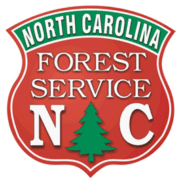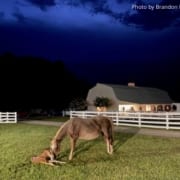N.C. Forest Service Annual Tree Seedling Sale Kicks Off July 1
– information courtesy of N.C. Department of Agriculture
The N.C. Forest Service will begin accepting orders Tuesday, July 1, for its annual tree seedling sale. With an average annual production of 10 million seedlings, the NCFS Nursery Program produces enough native and genetically improved tree seedlings to plant roughly 18,700 acres of land.
“Our nursery program continues to serve as a stable provider of native forest tree seedlings while ensuring access to a reliable supply of more than 40 tree species for planting throughout North Carolina,” said Agriculture Commissioner Steve Troxler. “These affordable tree seedlings help keep our forestlands growing, thriving and beautiful. Traditionally, seedling inventory goes quickly, so I encourage folks not to hesitate.”
Quality conifer and hardwood seedlings are available for purchase in a range of quantities. Genetically improved stock is available for Fraser fir, loblolly, longleaf, shortleaf, Eastern white pine and Virginia pine. These seedlings offer better volume growth, tree form, disease resistance, straightness, and other characteristics needed to produce beautiful Christmas trees, healthy woodlands and quality forest products. Customers interested in knowing more about specific tree species and available inventory can speak with NCFS Nursery staff, as well as reference the ordering website or seedling catalogs.
Individuals may place orders in a variety of ways:
- Tree seedlings can be ordered from the online seedling store at www.buynctrees.com.
- Tree seedlings can also be ordered by phone at 1-888-NCTREES (1-888-628-7337) or 919-731-7988.
- Tree seedlings can be ordered using the order form in the FY25-26 Nursery Seedling Catalog. Complete the form and mail to Seedling Coordinator, 762 Claridge Nursery Road, Goldsboro, NC 27530.
- A user-friendly online catalog will soon beavailable athttps://www.ncagr.gov/divisions/nc-forest-service/nursery-tree-improvement-program. Seedling catalogs will also be available at local NCFS offices beginning in July. Within the catalog, landowners can find information about the types of tree species, quantities and cost to order. Each species description includes information about ideal planting locations and whether a species is typically used to benefit wildlife, restore forest habitats or as marketable timber.
- Accepted methods of payment are check, money order, Mastercard and Visa.
Most containerized seedlings are available and used October through March while most bare root seedlings are available and used January through March. Seedling orders can be shipped to one of 13 distribution centers statewide for a small fee or via UPS for a charge. Seedling orders are also available for pickup from the NCFS Claridge Nursery in Goldsboro or the Linville River Nursery near Crossnore.
For information on planting trees, customers are encouraged to contact their local NCFS county ranger. Contact information for NCFS county office and nursery locations is available at www.ncforestservice.gov/contacts.





